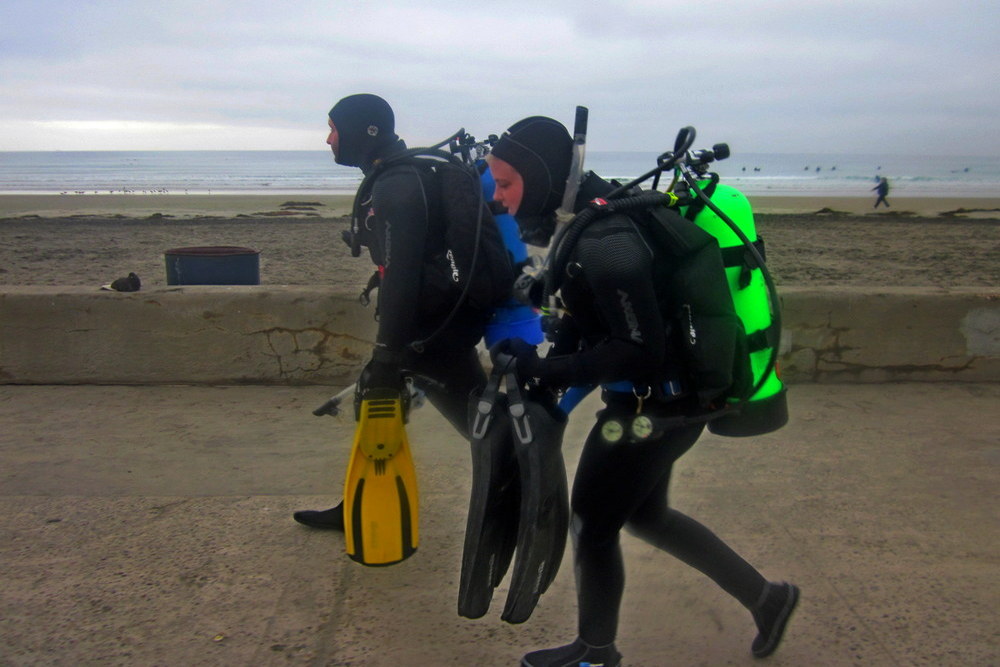Rushing Through the Basics
One of the biggest mistakes you can make as a new diver is rushing through the fundamentals. It’s easy to get caught up in the excitement of getting into the water and overlook the importance of mastering the core skills first. When you take the time to practice equalizing, buoyancy control, and proper breathing, you build a strong foundation that makes every dive safer and more enjoyable. If you skip over these basics, you’ll end up spending more time adjusting than appreciating the underwater beauty. The key is to slow down, repeat your drills, and permit yourself to learn at your own pace. This way, every dive builds your confidence rather than testing your limits.
Skipping Pre-Dive Checks
Another common mistake new divers make is forgetting to complete thorough pre-dive checks. You might assume your gear is fine because it worked last time, but even minor issues can lead to big problems underwater. A strap out of place, a regulator leak, or a partially full tank can turn a dive into a stressful experience. That’s why taking a few extra minutes to scrutinize your equipment is so important. When you work with an instructor, you’ll learn the proper steps to double-check everything before you enter the water. Developing this habit early not only prevents problems but also helps you feel more at ease once you’re underwater.
Struggling with Buoyancy Control
Buoyancy is often one of the most complex skills for beginners to master. If you don’t have reasonable control, you might find yourself constantly rising, sinking, or kicking up sand from the bottom. This makes it harder to enjoy your dive and can even harm delicate marine life. The good news is that buoyancy control gets easier with practice and the proper guidance. You’ll learn how to use your breath, adjust your weights, and work with your buoyancy compensator to stay balanced in the water. Once you find that sweet spot, you’ll be able to move effortlessly and focus on the sights around you rather than struggling to stay in place.
Ignoring Air Consumption
Many new divers forget to keep track of their air supply, focusing instead on the excitement of what they’re seeing underwater. While it’s natural to get distracted, running low on air without realizing it can put you at risk. Learning how to monitor your air gauge regularly and plan your dive around your limits is a habit you need to develop right away. An instructor can teach you how to breathe more efficiently, move more slowly, and avoid wasting energy so that your tank lasts longer. The more mindful you are of your air consumption, the more relaxed and safe you’ll feel during your dive.
Overconfidence in Early Dives
Feeling proud of your new certification is entirely normal, but letting overconfidence take over too soon can be dangerous. Some new divers push themselves into advanced dives before they’re truly ready, which can lead to stressful or even risky situations. You should give yourself time to gain experience in a variety of conditions, working with an instructor to gradually increase the challenge level. By pacing yourself, you’ll avoid feeling overwhelmed and instead enjoy steady progress. Remember, scuba diving is a lifelong journey, not a race. The more patient you are with your development, the stronger and safer you’ll become as a diver.
Begin Your Eco-Friendly Diving Adventure
Are you ready to strengthen your scuba skills while avoiding common beginner mistakes? At San Diego Scuba Guide, you’ll receive expert instruction and ongoing support to help you master low-impact diving techniques, ensuring every dive is safe and sustainable. Whether you’re just starting or working to refine your abilities, we’ll guide you every step of the way. Call us today at (858) 397-8213 to begin your eco-friendly diving adventure and gain the confidence you need to enjoy the ocean to the fullest.


